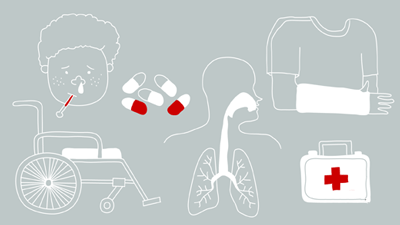
The U.S. healthcare system costs each of us about twice as much as those in other wealthy countries. Are we getting our money’s worth? Not by a long shot.
According to the fifth and most recent of a series of reports spanning the past decade by The Commonwealth Fund, one of the world’s most respected independent health care think tanks, “the U.S. is last or near last on dimensions of access, efficiency, and equity” and last on overall quality of our system. The nations studied include Australia, Canada, France, Germany, the Netherlands, New Zealand, Norway, Sweden, Switzerland, the United Kingdom, and the United States.
Although the U.S. does have some advanced medical technology, as do most of the other countries studied, we do a lousy job of getting it to many of our people, leading to our poor scores on access.
We don’t compare particularly favorably when it comes to quality either. We score relatively poorly on safe and coordinated care, and while we score well on access to (lucrative) specialized care (but not primary care), that access does not translate into better outcomes. “The U.S. ranks last overall with poor scores on all three indicators of healthy lives — mortality amenable to medical care, infant mortality and healthy life expectancy at age 60.”
The Commonwealth report goes on to observe that, “The most notable way the U.S. differs from other industrialized countries is the absence of universal health insurance coverage. Other nations ensure the accessibility of care through universal health systems and through better ties between patients and the physician practices that serve as their medical homes.”
Even though the Affordable Care Act does result in a modest expansion of coverage for many people, even if it were to work exactly as designed (which it won’t) it would leave 25 million to 35 million people uninsured. Many more are underinsured due to high deductibles and co-pays, and restrictive physician and hospital networks. Both impede access to timely care. This will still leave us trailing most if not all other wealthy countries in the overall performance of our healthcare system.
Which causes me to think about Medicare, the closest thing we have to a universal health insurance system. Once you qualify for Medicare, it is good for life without any means test, and without regard to age, health status, employment status, gender or place of residence.
That kind of security cannot be achieved through private insurance.
Medicare was enacted by Congress and signed by President Johnson on July 1, 1965. Because of its simplicity, Medicare was smoothly rolled out to 19 million beneficiaries on July 1, 1966. No confusing websites or glitchy software needed. Since then, it has proven to be one of the most effective and efficient federal programs ever enacted, and has become politically untouchable. Even the most conservative politicians refuse to attack it, although some try to make the spurious (and ridiculous) claim that it is not really a federal program.
By following Medicare’s example, we could do a lot better. It would be very nice if we lived in a political culture where we could simply improve the ACA by replacing it with Medicare for everybody. But we don’t and won’t — at least not yet. We will have to wait a few more years, until the bewildering complexity, unfairness and arbitrariness of the ACA become more apparent to more people.
That shouldn’t stop us from preparing for the inevitable. The next landmark in the evolution of U.S. health care policy could come as soon as 2017, when the ACA provides the states an opportunity to replace many of its provisions with a simplified and improved system of their own.
Vermont has already enacted legislation that starts it on the path to do just that. Maine could be in the next wave of states to follow their example. If the Legislature is unwilling or unable to do that, the people could, through our initiative process.
We should celebrate the 49th (and soon 50th) anniversary of Medicare by starting the process of furthering the national movement toward universal health care as a human right.
We could create a simpler, more efficient, more equitable and less costly healthcare system that would turn us away from our current system of money-driven medicine and back toward the goal of healthcare with the sole mission of preventing and healing disease.
It would be the right thing to do.
Trump is silencing political dissent. We appeal for your support.
Progressive nonprofits are the latest target caught in Trump’s crosshairs. With the aim of eliminating political opposition, Trump and his sycophants are working to curb government funding, constrain private foundations, and even cut tax-exempt status from organizations he dislikes.
We’re concerned, because Truthout is not immune to such bad-faith attacks.
We can only resist Trump’s attacks by cultivating a strong base of support. The right-wing mediasphere is funded comfortably by billionaire owners and venture capitalist philanthropists. At Truthout, we have you.
Our fundraising campaign is over, but we fell a bit short and still need your help. Please take a meaningful action in the fight against authoritarianism: make a one-time or monthly donation to Truthout. If you have the means, please dig deep.